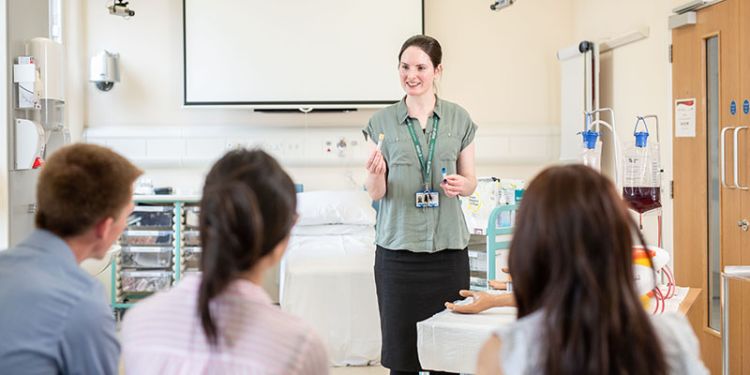Assessment

The Leeds School of Medicine has an international reputation for high quality assessment – we're one of only a handful of medical schools worldwide to hold the ASPIRE-to-Excellence award in this area.
Assessment on the MBChB programme is based on sound educational principles which encompass both assessment for learning and assessment for progression.
Assessment for learning
Regular assessment for learning throughout the course builds your knowledge and skills through written and practical exams, coursework and clinical assessments.
The course philosophy encourages you to develop an understanding of the assessment process and how to connect this with your own learning and development. The intention is to provide clear links with outcomes and future assessment, with in-course testing conducted to ensure that a satisfactory standard is being reached. This approach provides effective feedback and would allow early intervention and support if necessary.
At Leeds you will benefit from a range of innovative assessment methods using state-of-the-art mobile technology – our assessments and feedback are undertaken on a mobile app which allows you to receive timely feedback whilst on placement.
Assessment for progression
Assessment for progression occurs at the end of each year and provides a standard against which progression decisions are made, with clinical examinations mapped to meet the General Medical Council's (GMC) learning outcomes. This process is central to quality assurance and will involve a continuation of the existing programme of assessment tools, namely: single best answer questions, projects, case reports and OSCEs (Observed Structured Clinical Examinations). The award of MBChB with Honours is available for outstanding students.
Focus on feedback
The School of Medicine will constantly work with you to ensure the MBChB degree delivers the most appropriate and productive learning experience. A key area over the next three years is proactively managing feedback. Our Focus on Feedback programme is designed to improve the quality and relevance of feedback, both given and received, for our students.

